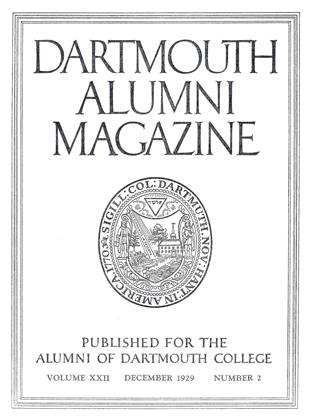Naturally a freshman must eat. There were a few real "clubs," cooperative groups in which the price of board slightly varying from week to week was assessed upon the members. But such organizations were difficult to manage, and though the name was retained board was generally furnished at a fixed price varying from two to four dollars a week. So close was calculation that in some of the lower priced clubs there was a deduction of fifty cents if board was taken without tea or coffee. There was a manager known as "commissary" who kept the chairs full, collected the bills and sat at the head of the table. His board was his reward. The nutrition expert was the lady who furnished everything pertaining to alimentation. She was happy if she could end a term with fifty cents a week profit from each boarder, her own subsistence and a waiting list. I boarded with the genial Ethelbert Talbot, recently deceased bishop of the Protestant Episcopal Church, until he graduated in 1870. If by an evil chance one wished to eat outside of the regular minutes I can recall no place where it could be done except Lil Carter's restaurant where he would cook you something if you would wait long enough. It was wasteful to spend money for extra food when it was only necessary to be on time at the club.
 View Full Issue
View Full Issue
More From This Issue
-
 Class Notes
Class NotesCLASS OF 1923
December 1929 By Truman T. Metzel -
 Article
ArticleAlumni Associations
December 1929 -
 Article
ArticleAlumni Council Meets in New York
December 1929 -
 Article
ArticleCarnegie Report
December 1929 -
 Article
ArticleThe Dartmouth Indians
December 1929 By Eric P. Kelly -
 Sports
SportsThe Yale Epic
December 1929 By Phil Sherman
Professor Edwin J. Bartlett
-
 Article
ArticleTHIS HANOVER
JUNE, 1928 By Professor Edwin J. Bartlett -
 Article
ArticleA FRESHMAN'S EXPERIENCE
DECEMBER 1929 By Professor Edwin J. Bartlett -
 Article
ArticleSOCIETIES
DECEMBER 1929 By Professor Edwin J. Bartlett -
 Article
ArticleDECLINE OF THE HANDEL SOCIETY
DECEMBER 1929 By Professor Edwin J. Bartlett -
 Article
ArticleTEACHING IN VACATIONS
DECEMBER 1929 By Professor Edwin J. Bartlett -
 Article
ArticleEACH STUDENT HAD A STOVE
DECEMBER 1929 By Professor Edwin J. Bartlett







